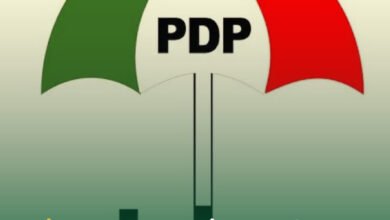Price War Threatens Air Peace’s London Operations – Should the Government Step In?

The fanfare has ended, and the ribbons are off. Nigeria’s Air Peace now faces troubling headwinds in its newly embarked London flight operations as foreign competitors, which previously dominated the route, respond to its entry with lower price points that allegedly threaten viability.
Allen Onyeama, the CEO of the airline, lamented the situation in a recent interview where he accused the competition of a ‘devilish conspiracy’.
He said, “Of course, it is a very devilish conspiracy. All of a sudden, airlines are underpricing — that is, below cost. Not even up to a month. One airline was advertising $100, another $305, and another $350. They’re trying to fill up the entire aircraft and carry people on the wings. It is not even enough to buy your fuel.”
He went further to assert that the foreign airlines carrying out the alleged practice have the backing of their respective governments, with the ultimate objective being to eject Air Peace from the route.
“Their governments are supporting them to do this and take Air Peace out. The idea is to eliminate Air Peace, and once they succeed, Nigeria will pay 20 times over.”
To put it plainly, Mr Onyeama is accusing the competition of predatory pricing, which involves setting prices very low, even incurring a loss, to eliminate competition, establish a monopoly, and gain full control over commodities (in this case, the Lagos to London route). Afterward, prices are reviewed to recover all losses and record greater profits.
This practice is deemed illegal in most countries, including Nigeria, as spelt out in the Federal Competition and Consumer Protection Act, 2018, which outlaws “selling goods or services below marginal and average cost.” But it is not an easy allegation to prove. To indict the foreign airlines, the Federal Competition & Consumer Protection Commission (FCCPC) would have to prove that they are currently setting prices below their breakeven point.
Such investigations could take many months, with serious implications for Nigeria’s business reputation as a country committed to free trade participation and competition, including from foreign entities with valuable investments driving economic activities.
Onyeama has tacitly requested government support. Debates rage over the nature of government intervention or whether intervention should occur at all. Subsidizing Air Peace’s operations on the route to strengthen its position in the price war is not an appealing option and is also inconsistent with the current administrative approach of the Tinubu-led FG, which has terminated the costly oil subsidy and is slashing other major government expenditures.
One way the Nigerian government could step in is to introduce a price floor similar to what the NCC did for data pricing before it was suspended. This sets a minimum viable price point that none can go below, ensuring that new entrants like Air Peace are not financially outmuscled by larger and well-heeled competitors. But it may be a hard sell to consumers who are already salivating at the prospect of a price war that may drive ticket prices to the bottom.
Others have encouraged Air Peace to compete on experience, not price. Ikpeme Neto, a health entrepreneur, said in a post on X (formerly Twitter), that: “Competing over price is a race to the bottom. I need Air Peace to compete on the experience.”
“Brioche or Nkwobi at 30,000 feet, you choose. Cheese is not what you eat on our airline, it’s what you say when taking pictures while eating our asun,” he continued, suggesting advert copies leveraging the airline’s indigenous status.





